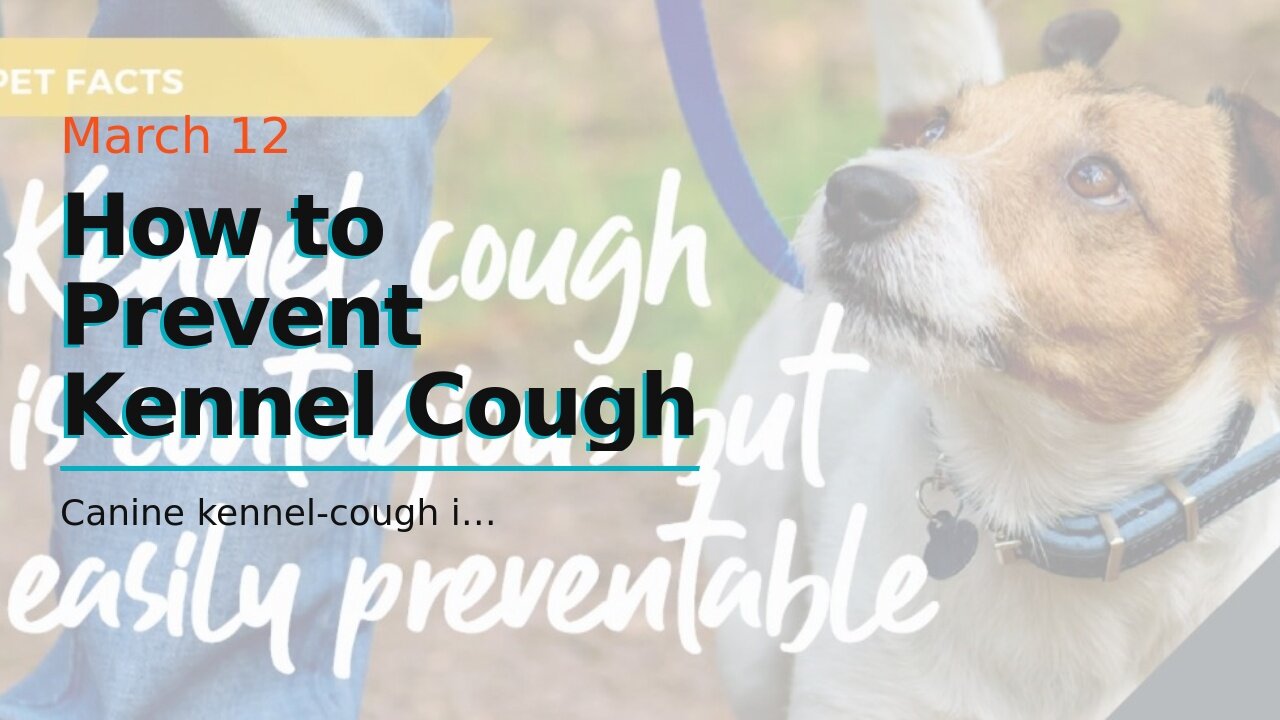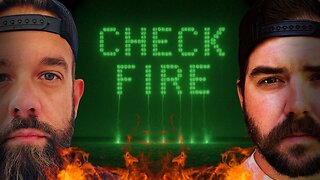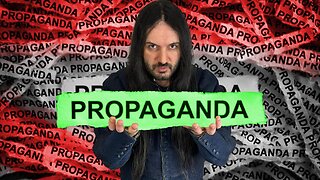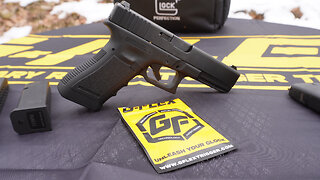Premium Only Content

How to Prevent Kennel Cough
How to Prevent Kennel Cough
Canine kennel-cough is an upper respiratory tract infection that affects the nose, throat, and trachea. It’s also called infectious tracheobronchitis or Canine Infectious Respiratory Disease Complex, and is as common in dogs as it is in humans. Kennel cough spreads between dogs in the same way as upper respiratory diseases are transmitted between people. There are many vaccines that can prevent or reduce kennel cough in dogs, but not as many that can protect humans from colds. The causes of kennel cough Kennel cough can be caused by a variety of bacteria and viruses. Although a dog can be infected...
Canine kennel-cough is an upper respiratory tract infection that affects the nose, throat, and trachea. It’s also called infectious tracheobronchitis or Canine Infectious Respiratory Disease Complex, and is as common in dogs as it is in humans. Kennel cough spreads between dogs in the same way as upper respiratory diseases are transmitted between people. There are many vaccines that can prevent or reduce kennel cough in dogs, but not as many that can protect humans from colds. The causes of kennel cough Kennel cough can be caused by a variety of bacteria and viruses. Although a dog can be infected by one of these pathogens, it is possible for kennel cough to spread to multiple organisms. Kennel cough is caused by a dog that sneezes or coughs or rubs his nose against a kennel wall or human. Nancy Kerns. Photo Bordetella pneumoniae is a bacteria that can cause kennel-cough. It can be the primary agent or secondary to a virus. Mycoplasma, a bacteria found naturally in dogs’ respiratory tracts, is known as. It can cause clinical signs in dogs if it is present with another primary agent, such as B. bronchiseptica (or a virus). Kennel cough can also be caused by viruses. These include canine adenovirus-2 (CAV-2), canine parainfluenza virus (CPiV), canine herpesvirus (CHV), and canine distemper virus (CDV). Canine coronavirus, which can cause kennel-cough in dogs, is not the same as the coronavirus that causes COVID-19 among humans. Although the canine influenza viruses H3N2 or H3N8 are implicated in kennel-cough cases, they are not the same influenza viruses that cause seasonal influenza in humans. Dogs can become ill from kennel cough if they are afflicted with one of the primary agents. These opportunistic bacteria include PseduomonasPasteurella, or the coliform class of bacteria. Kennel cough can be spread through close contact with infected dogs, their respiratory secretions, and other dogs. The respiratory secretions are aerosolized drops from coughing, sneezing, saliva, or nose discharge. They can be left on surfaces such as walls, floors, ceilings, bowls, blankets and clothes. It is easy to spread between dogs who attend doggie daycare, dog parks, groomers, training classes, or doggie daycare. The incubation period is the same as for humans with the common cold. Dogs may shed one of the organisms that causes kennel cough, but not show signs of illness. This is known as the incubation time. The length of the incubation period can vary from organism to organism. It can be as short or as long as 14 days. It is vital to vaccinate against kennel cough You can reduce your risk of getting kennel cough by making sure that your dog has been properly vaccinated. Vaccines can be obtained for B. bronchiseptica (CAV-2, CPiV and CDV), as well as both canine influenza strains. There are three types of vaccine available for B. bronchiseptica: injectable, intranasal, and oral. You can either use the intranasal vaccine to protect against B. bronchiseptica alone or combine it with the vaccine for CPiV. The vaccine is administered once and then it is boosted annually. The vaccines for CDV, CAV-2 and canine parvovirus are combined. This vaccine is also known as the DAP vaccine (for Distemper, Adenovirus and Parvovirus). This vaccine also includes CPiV. The combination vaccine is administered every two to four week to puppies from six weeks old to sixteen weeks old. It is boosted one year after the last dose, and every three years thereafter. The canine influenza vaccine offers some protection against both strains of influenza that have been detected in the United States. The vaccine is administered in a two-dose series, two to four weeks apart. It is then boosted annually. Re...
-
 2:38:16
2:38:16
I_Came_With_Fire_Podcast
13 hours agoDid Pete Hegseth Commit WAR CRIMES | No more INCOME TAX | More Fraud in Minnesota W/ Mike Caldarisie
28.5K13 -
 1:32:30
1:32:30
Adam Does Movies
8 hours ago $1.25 earnedTalking Movies + Ask Me Anything - LIVE
21.8K1 -
 2:12:14
2:12:14
TheSaltyCracker
6 hours agoWar Crimes ReeEEStream 12-03-25
77.7K191 -
 1:31:59
1:31:59
Glenn Greenwald
8 hours agoTrump Administration Claims to Save Hundreds of Millions of Lives by Blowing Up Drug Boats; Ethan Klein's Unhinged Vengeance & Lawsuits Against Other YouTubers: With Taylor Lorenz | SYSTEM UPDATE #553
107K150 -
 19:14
19:14
MetatronCore
23 hours agoHow Propaganda works on your Brain
18.3K7 -
 1:26:32
1:26:32
Joker Effect
5 hours agoWHO IS TYSON HOCKLEY?! What does the IRL streaming space look like? WHY IS EVERYONE SUEING EACHOTHER
8.65K -
 2:48:40
2:48:40
Barry Cunningham
8 hours agoLIVE BREAKING NEWS: Erika Kirk and TPUSA Have Had It With Candace Owens | Where Are The Children?
56.7K76 -
 15:30
15:30
IsaacButterfield
22 hours ago $1.21 earnedViolent Immigrant Crime Is Exploding in Australia
13.6K17 -
 8:37
8:37
DBoss_Firearms
12 hours ago $0.47 earnedHow hard is it to shoot with a G-Flex Trigger?
9.32K -
 1:05:17
1:05:17
BonginoReport
9 hours agoWhite House Claps Back At Sabrina Carpenter - Nightly Scroll w/ Hayley Caronia (Ep.189)
124K41